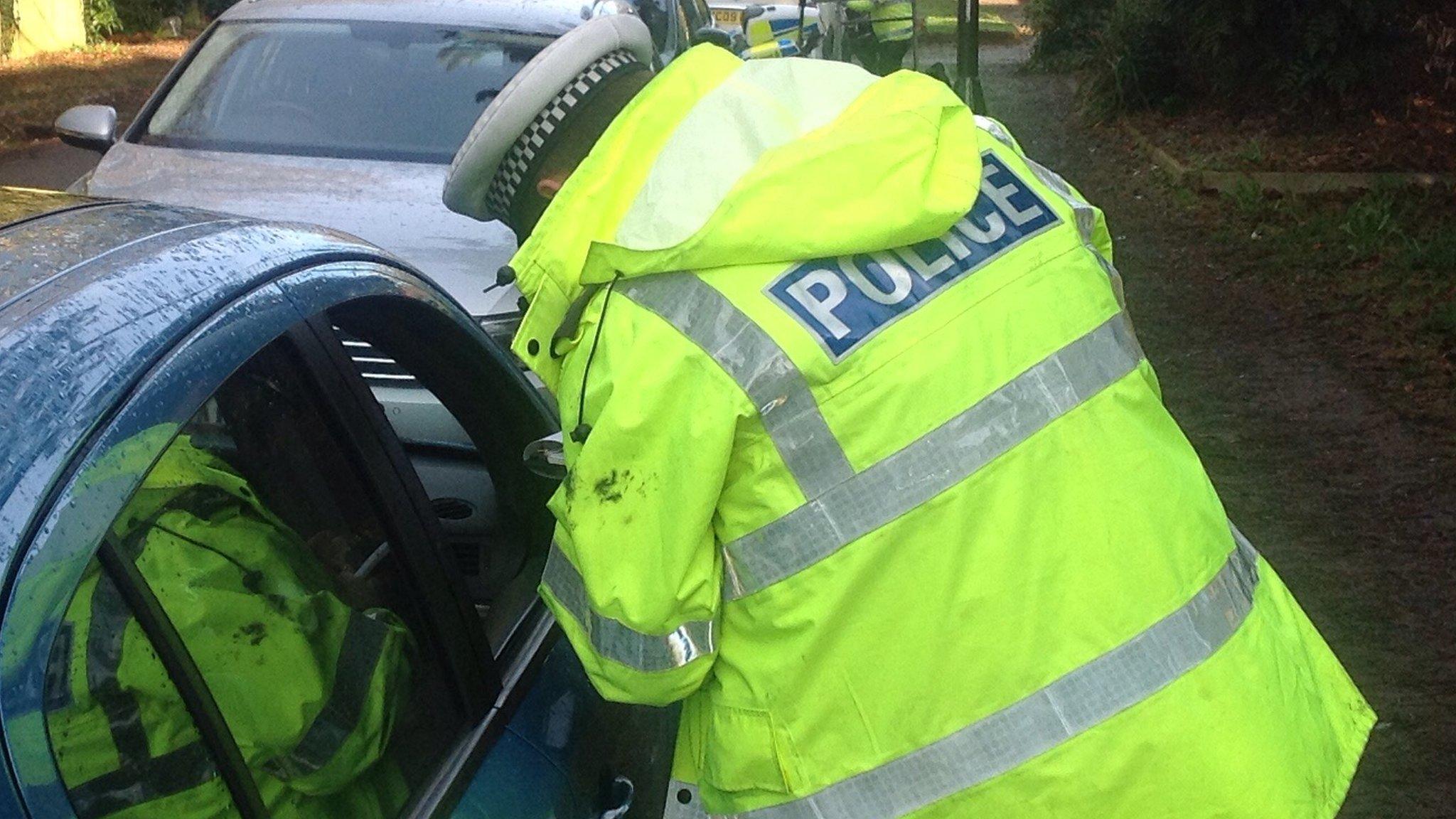'Extra £450m funding' for police in England and Wales
- Published
- comments
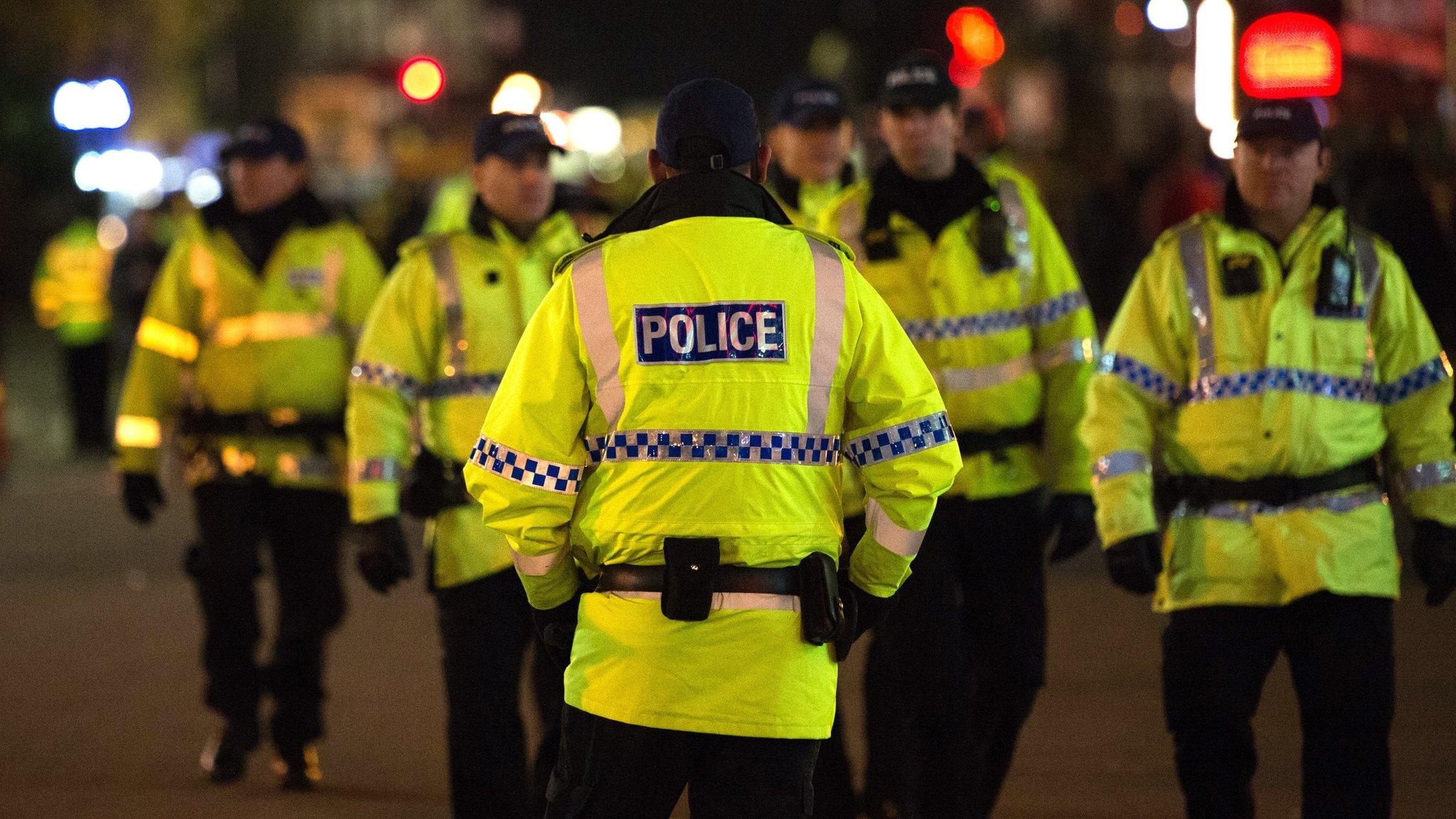
A potential £450m in extra funding for police in England and Wales in the next financial year has been announced by the Home Office.
Police and crime commissioners are to be given the power to raise the portion of council tax which goes towards policing by £12 per household annually.
That would raise £270m, while £130m for national priorities, such as firearms, would come from central government.
An extra £50m for counter terrorism has already been pledged.
The government also announced the overall grant for the 43 forces in England and Wales would remain the same in cash terms in 2018-19 at £12.6bn.
However, opposition MPs described the main settlement for next year as a "real-terms cut".
Although funding for police was protected in the 2015 spending review, police and crime commissioners have been expressing concern about increased demands on officers.
In a statement, the Home Office said next year's extra funding came after Policing Minister Nick Hurd spoke to every force about the issues they face.
"It is clear that with more victims of serious, hidden crimes such as domestic abuse, modern slavery and child sexual exploitation coming forward, this has placed greater demand on policing," it said.
Speaking in the Commons, Mr Hurd said the money amounted to a "comprehensive settlement that makes sure police have the resources they need".
He said the government had responded positively to requests from the police and crime commissioners for "more flexibility" around the level of the police precept included in council tax.
Mr Hurd acknowledged that the £270m increase in funding would depend on every commissioner applying to raise their precept.
Shadow home secretary Diane Abbott questioned whether the settlement would "really enable police forces to meet the challenge and the reality of modern policing".
She said: "Since 2010 the Tories have made huge cuts to the police, 20,000 police officers have been lost and an increasing number of overstretched forces say they cannot respond to certain crimes. Further cuts in police officer numbers are now inevitable."
'Long way short'
In June, London's police force, the Met, said it needed to secure more funding after being left "stretched" by terror attacks and a rise in violent crime.
But responding to the new announcement, London's Labour mayor Sadiq Khan, said the government had "refused to give the Met the resources they need to do their job once again" and the policing element of council tax was likely to be increased by the maximum allowed.
Andy Burnham, Labour mayor of Greater Manchester, said people were noticing the loss of visible policing and accused the government of gambling with public safety amid the terror threat.
He said a rise in council tax would mean some of the most deprived communities in the country would bear the "burden of the government's failure to fairly fund policing".
On Tuesday, the Communities Secretary Sajid Javid announced that the largest local authorities in England would be allowed to raise council tax by up to 5.99% next year.
David Jamieson, the Labour police and crime commissioner for the West Midlands, said the settlement fell a "long way short" of the extra £22m his police needed.
In its statement, the Home Office said it had identified a further £100m of potential savings to be made through "smarter procurement of everything from cars to uniform".
It also said improving levels of productivity could see officers spend an extra hour a day on the frontline.
Home Secretary Amber Rudd said: "Taxpayers will invest more money in forces because the work our officers do to protect us is absolutely vital and we recognise demand is changing.
"However, my message to police forces is that this increased investment must mean we raise the pace of reform.
"For too long embracing digital and increasing productivity have been tomorrow's policing problems - now they are today's necessities. The government is committed to meeting this challenge and we want policing to do the same."
- Published17 November 2017
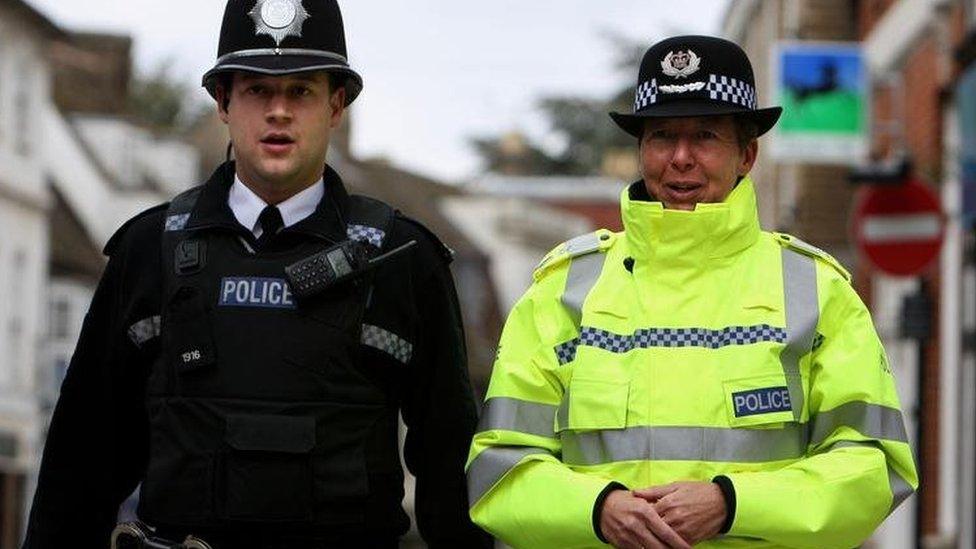
- Published23 June 2017
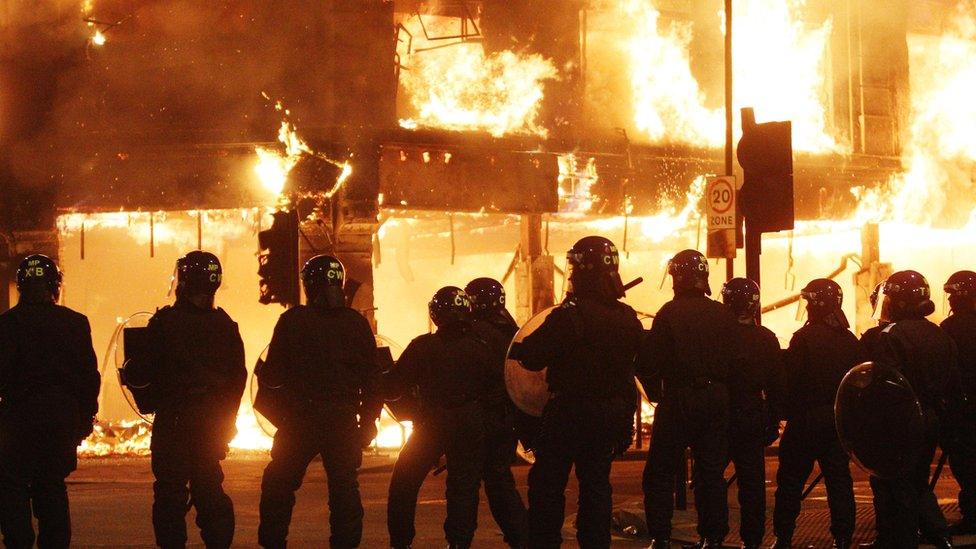
- Published20 June 2017
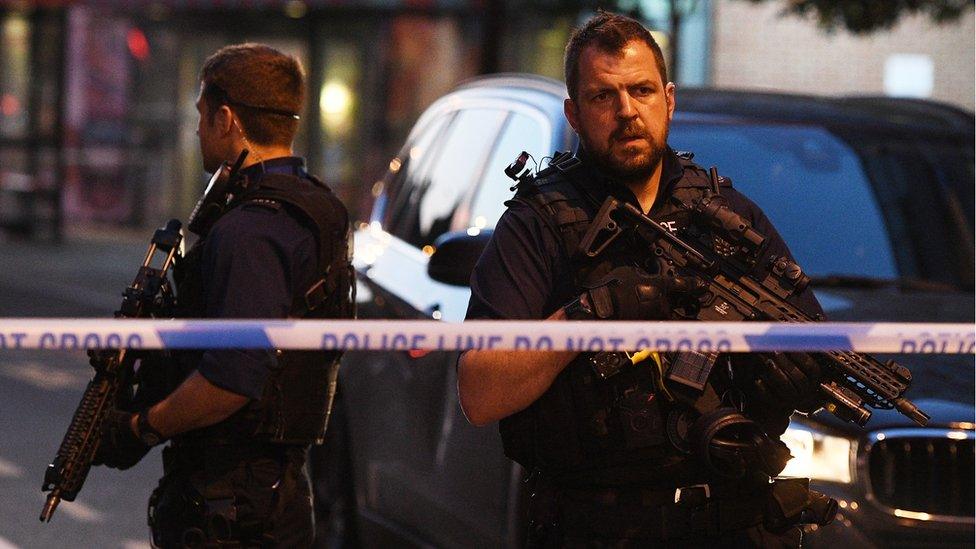
- Published2 March 2017
